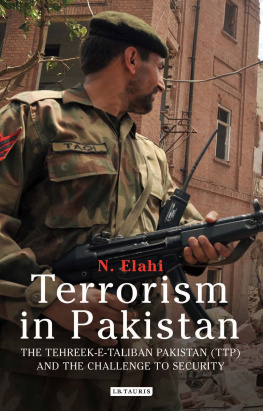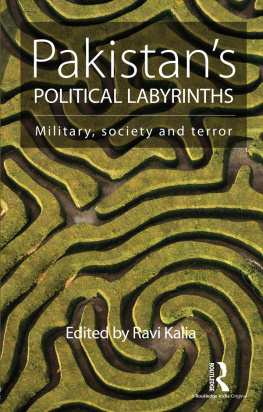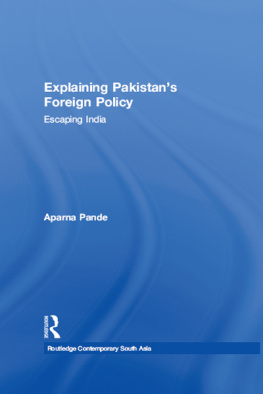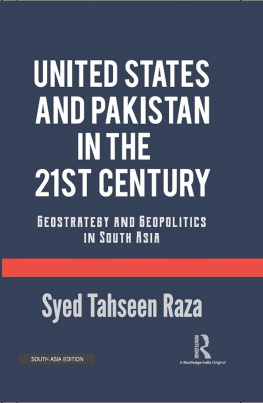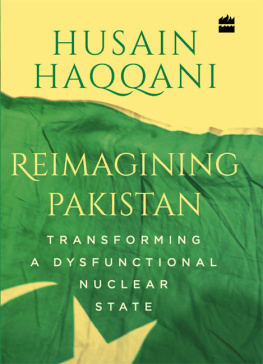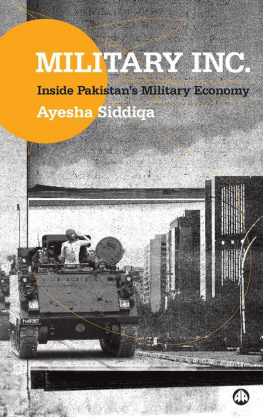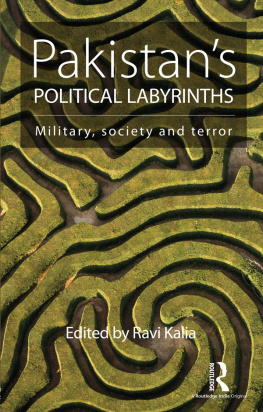Ashutosh Misra (editor) - Pakistans Stability Paradox: Domestic, Regional and International Dimensions (Routledge Contemporary South Asia Series)
Here you can read online Ashutosh Misra (editor) - Pakistans Stability Paradox: Domestic, Regional and International Dimensions (Routledge Contemporary South Asia Series) full text of the book (entire story) in english for free. Download pdf and epub, get meaning, cover and reviews about this ebook. year: 2011, publisher: Routledge, genre: Politics. Description of the work, (preface) as well as reviews are available. Best literature library LitArk.com created for fans of good reading and offers a wide selection of genres:
Romance novel
Science fiction
Adventure
Detective
Science
History
Home and family
Prose
Art
Politics
Computer
Non-fiction
Religion
Business
Children
Humor
Choose a favorite category and find really read worthwhile books. Enjoy immersion in the world of imagination, feel the emotions of the characters or learn something new for yourself, make an fascinating discovery.

- Book:Pakistans Stability Paradox: Domestic, Regional and International Dimensions (Routledge Contemporary South Asia Series)
- Author:
- Publisher:Routledge
- Genre:
- Year:2011
- Rating:5 / 5
- Favourites:Add to favourites
- Your mark:
Pakistans Stability Paradox: Domestic, Regional and International Dimensions (Routledge Contemporary South Asia Series): summary, description and annotation
We offer to read an annotation, description, summary or preface (depends on what the author of the book "Pakistans Stability Paradox: Domestic, Regional and International Dimensions (Routledge Contemporary South Asia Series)" wrote himself). If you haven't found the necessary information about the book — write in the comments, we will try to find it.
Pakistan, with the second largest Muslim population in the world, is a crucial country in the international system. It is an ally of the United States in the global war on terror but is also regarded as a major bastion of some of the most active jihadist organisations. This book highlights and explores the paradoxes that characterise contemporary Pakistan from the simultaneous democratization and Islamization of civil society to the schizophrenic US-Pakistan relationship.
The central theme of the book looks at Pakistans stability paradox. Commentators and analysts have over recent years often suggested that Pakistan was on the verge of state failure or collapse resulting from a myriad of dilemmas. Yet, remarkably the Pakistani state has proven to be more resilient. This book identifies not only the factors that are contributing to Pakistans perceived instability but also those factors that have contributed to the states resilience. Chapters explore this central paradox through three core dimensions of Pakistans contemporary dilemmas the domestic, regional and international dimensions.
Ashutosh Misra (editor): author's other books
Who wrote Pakistans Stability Paradox: Domestic, Regional and International Dimensions (Routledge Contemporary South Asia Series)? Find out the surname, the name of the author of the book and a list of all author's works by series.


